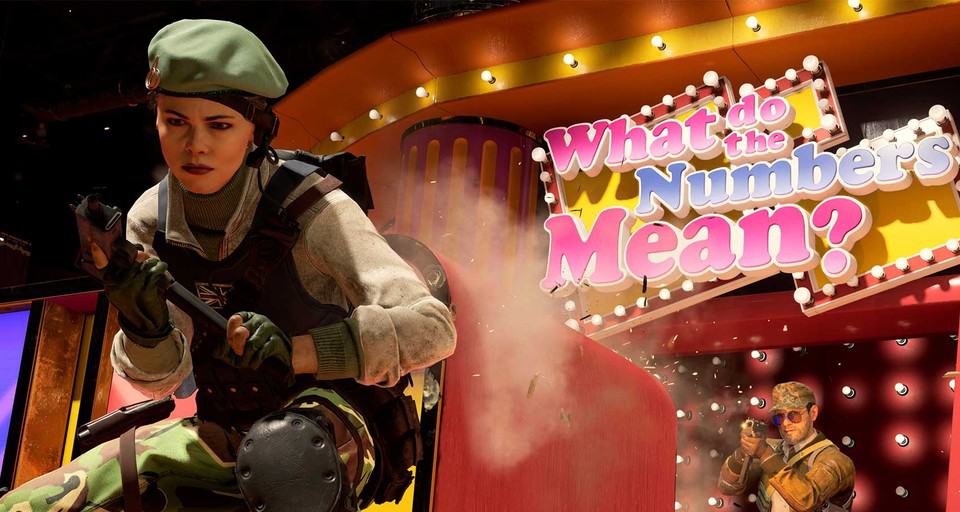Skill-based matchmaking is hotly debated in Black Ops: Cold War. Now, fans are once again protesting against the controversial feature.
Call of Duty Black Ops: Cold War is once again the subject of the familiar SBMM debate: Even before its release, the so-called skill-based matchmaking of the latest CoD installment drew harsh criticism.
Now the controversial topic is once again being discussed bitterly after some shooter experts shared new results from analyses and publicly spoke out against Cold War’s SBMM on Twitter, YouTube and the like.
Table of Contents
What is SBMM anyway?
But first, slowly: What is SBMM anyway and what is the problem? In a nutshell, SBMM can be described as players with the same skills being put into the same lobby and competing against each other in matches. In practice, this means that noobs fight noobs, amateurs fight amateurs, veterans fight veterans and pros fight pros.
Of course, this system is especially good for newcomers and beginners in the multiplayer of Black Ops: Cold War: If they are lumped together with other amateurs, there is less danger of meeting absolute shooter pros who will wipe the floor with them and ruin their gaming fun. So, in principle, skill-based matchmaking is not a bad idea.
However, more than a few fans are far from happy with Cold War’s current SBMM model: last weekend, the hashtag “FSBMM” went viral after a few popular players from the Call of Duty scene got the ball rolling. We explain what exactly is currently being criticized about the system.
COD Stream 11. Dec. #FSBMM pic.twitter.com/DxdMua2bZR
— L (@wendetta211) December 11, 2020
What is the problem with Cold War’s SBMM?
From various contributions on Twitter and also videos on YouTube, we have summarized the current biggest points of criticism of the SBMM of CoD: Cold War for you.
No respite for players with a high skill level
If you’re currently one of the more gifted players in Black Ops: Cold War, you won’t be able to take a breather thanks to the SBMM: Every experienced player who goes into battle against other veterans has to perform at their absolute best every second. Fine-tuning one’s own equipment and weapon loadouts is indispensable.
This sums it up: Matches among high-skill players are simply an effort for everyone involved. If you slack off for even a moment, you’ll lose out and find yourself at the bottom of the food chain. Cold War players with higher skill would thus simply want more relaxed matches that don’t feel like work under high pressure.
More grind for higher scores and rare achievements
Similarly, SBMM will make it harder for high skill players to earn certain achievements and skins or complete any challenges. This is because the fierce competition in SBMM-based matches will quickly put a crimp in your game.
Effects on ping and connection quality
According to the established CoD-YouTuber Drift0r, the SBMM can have even more effects: According to his analysis, the SBMM should currently lead to a reduction in connection quality and a higher ping – that would be a first in the history of the CoD series.
You can watch his complete 25-minute analysis on YouTube, and we have summarized the most important findings from Drift0r’s video for you as follows:
- High skill players take relatively longer to find a match and have a higher ping than lower skill players
- The ping of a player group increases from 10 to 25ms after a member switched to a high skill account.
- The matchmaking time of a group increased from 10 to 25 seconds after a member of it switched to a high skill account.
So, according to Drift0r’s video, SBMM in CoD: Cold War can cause the ping to improve or worsen based on the player’s skill. To determine this, Drift0r took into account the time to matchmaking, the server ping, the kill/death ratio of a lobby, the lobby score per minute, and the kill/death ratio of an account across five different matches.
Fans protest by playing worse
The general displeasure towards Black Ops: Cold War’s SBMM is now leading to players intentionally playing worse in protest. Just this past weekend, so-called “reverse boosting” developed into a small trend within the community, as our sister site MeinMMO reports.
“Reverse boosting” in protest
Reverse boosting means that players intentionally play worse and get killed disproportionately often in order to artificially drag down their personal stats and K/D ratio.
Thus, by engaging in reverse boosting, players end up in lobbies with significantly weaker players or even beginners. Of course, the pros are able to earn significantly more points or even rare achievements or unlocks.
Who’s reverse boosting tonight? 🖐🏾 #FSBMM
— Chain (@ChainFeeds) December 8, 2020
A problem for casual players
Reverse boosting, which takes place as a protest against SBMM, thus naturally poses a problem for more inexperienced players CoD newbies: This forces amateurs to compete against much stronger players and puts them at a disadvantage against them when in doubt.
https://twitter.com/_TomHenderson_/status/1336825761290989569?ref_src=twsrc%5Etfw%7Ctwcamp%5Etweetembed%7Ctwterm%5E1336825761290989569%7Ctwgr%5E%7Ctwcon%5Es1_&ref_url=https%3A%2F%2Fwww.gamestar.de%2Fartikel%2Fcod-cold-war-sbmm-ping-reverse-boosting3365138.html
What could a solution look like?
What may be surprising at this point is that not all SBMM critics would like to see skill-based matchmaking kicked out of Cold War or future CoDs entirely. Instead, they would much rather see the system adapted or reworked.
Drift0r, for example, only considers a relaxation of the current SBMM system to make sense in the context of his study. There would also be the possibility to differentiate more clearly between different SBMM variants, for example by introducing a ranked mode.
Whether anything will change in the current system, even in the face of ongoing protests against SBMM, remains questionable. Back in March 2020, former developer Michael Condrey revealed that the decision about SBMM lies primarily with the publisher – in this case, Activision.
In turn, Head of Technology Martin Donlon revealed that SBMM is not a system where you just flick the on or off switch. Instead, you have to constantly adjust and tune it.


